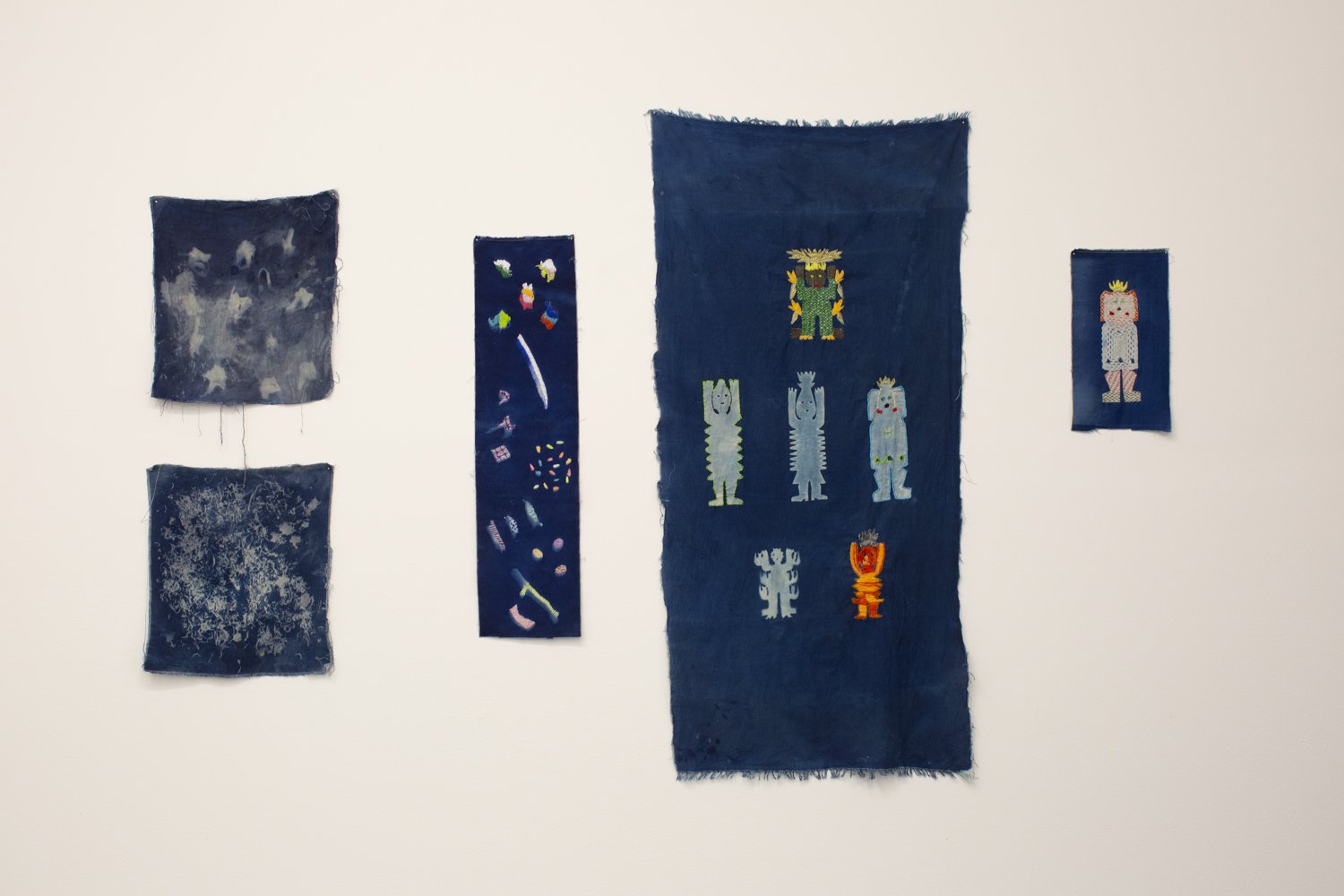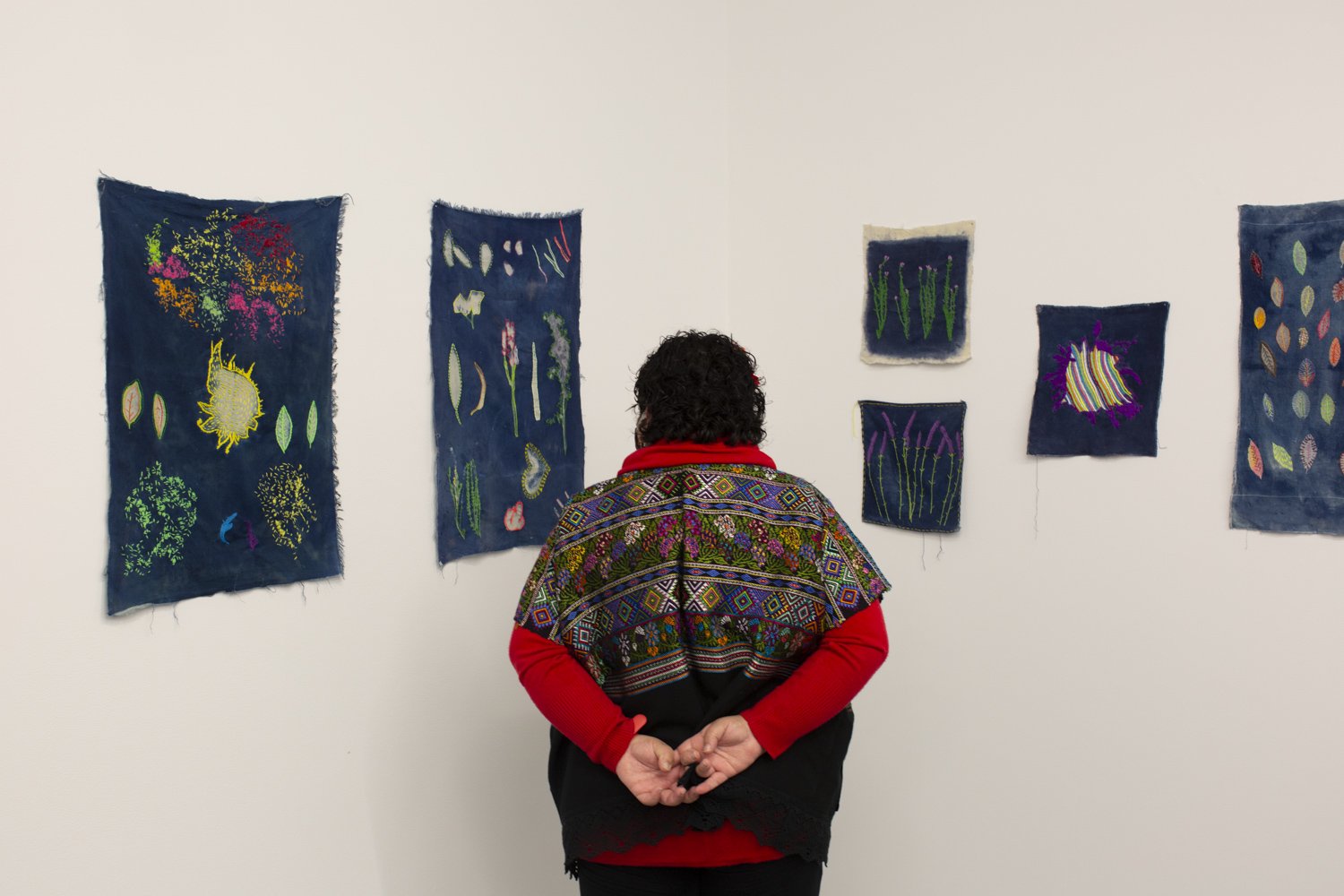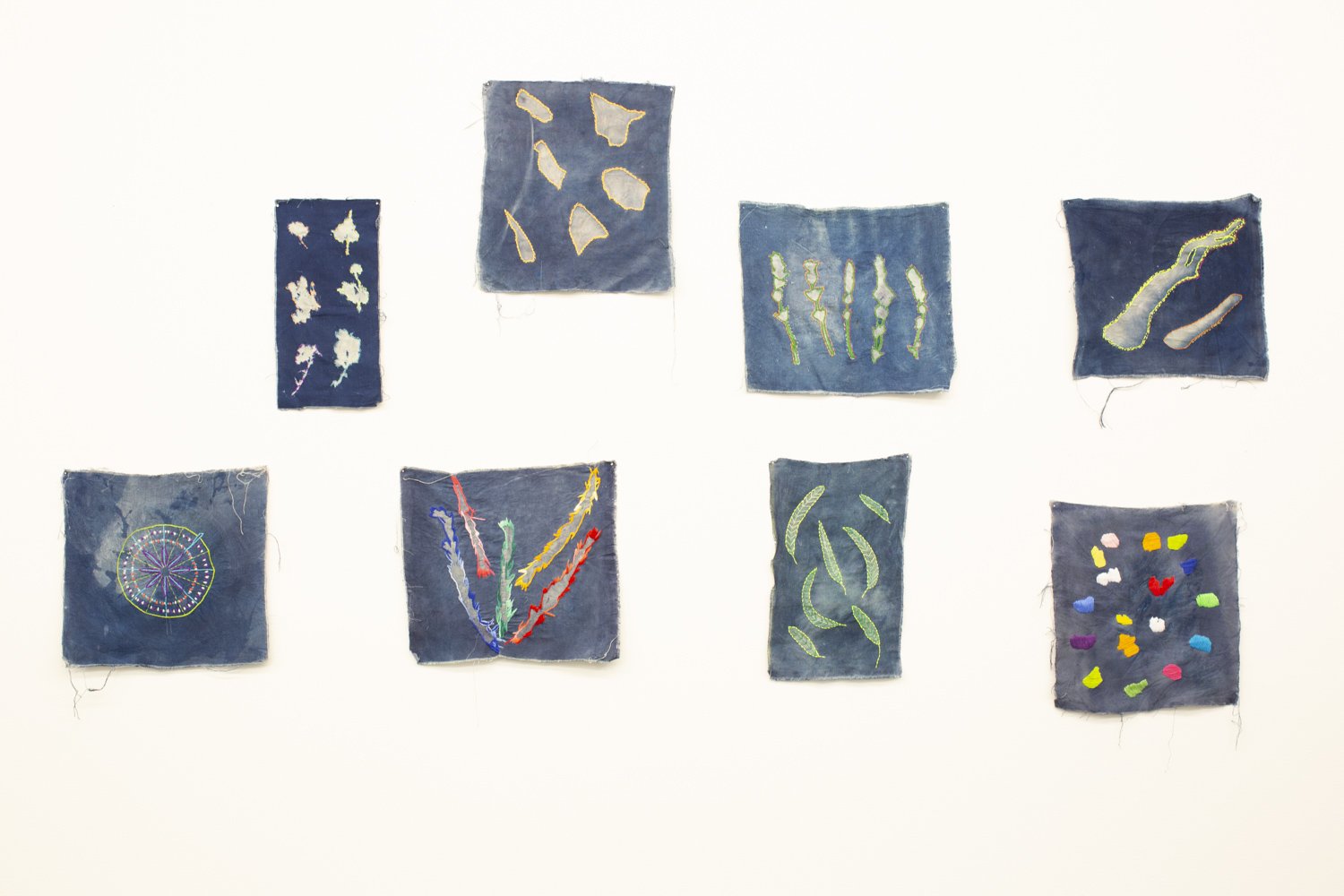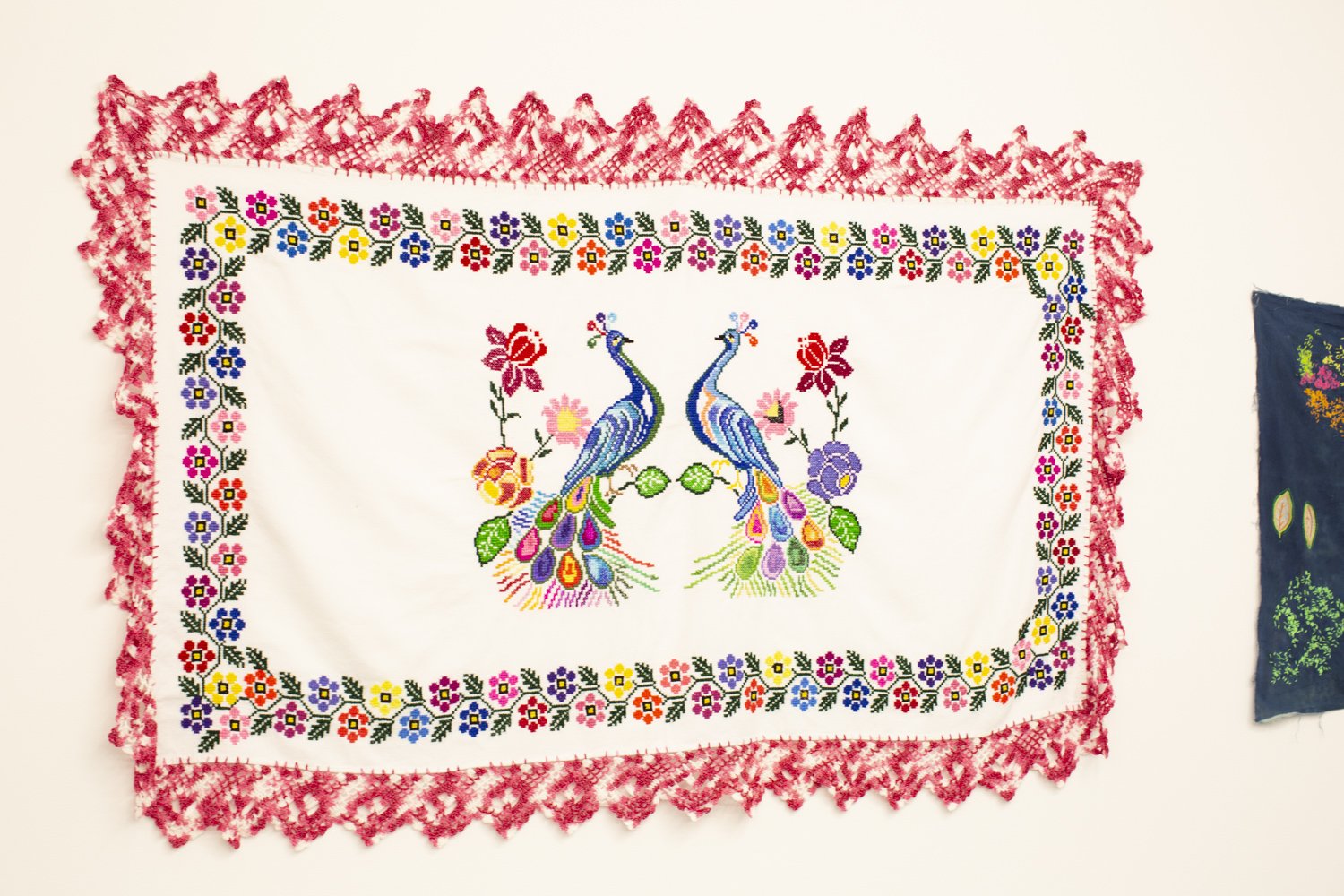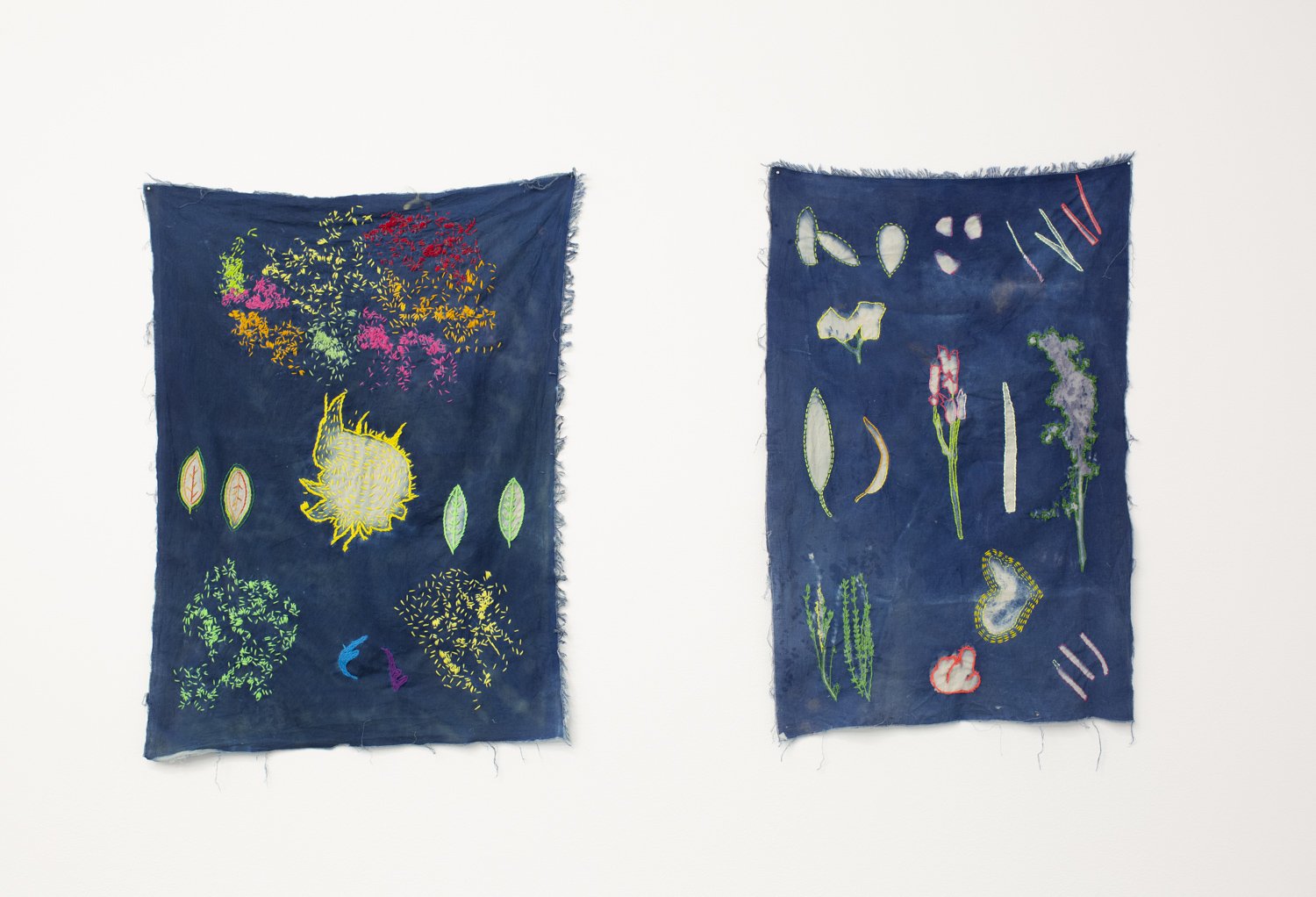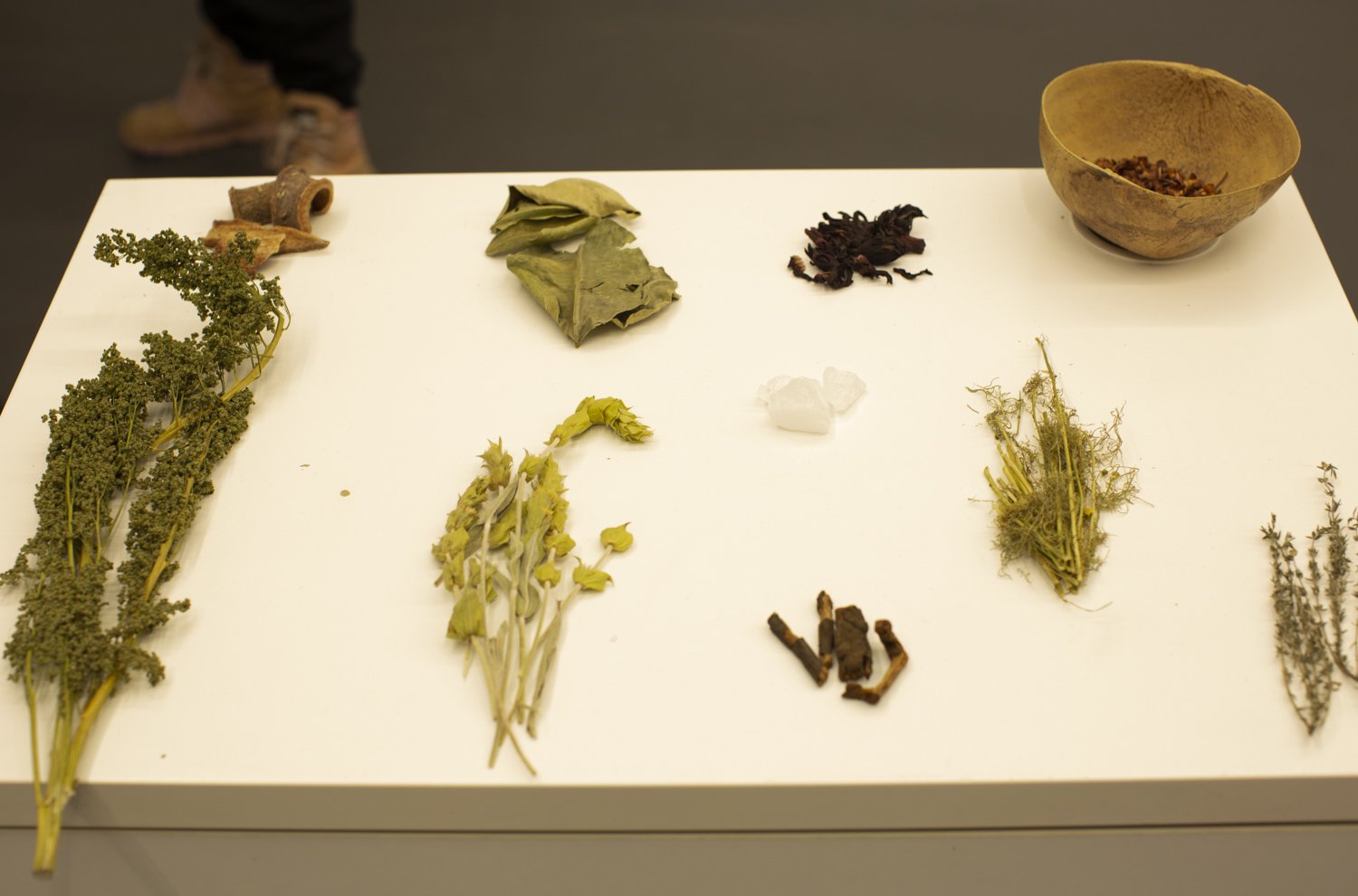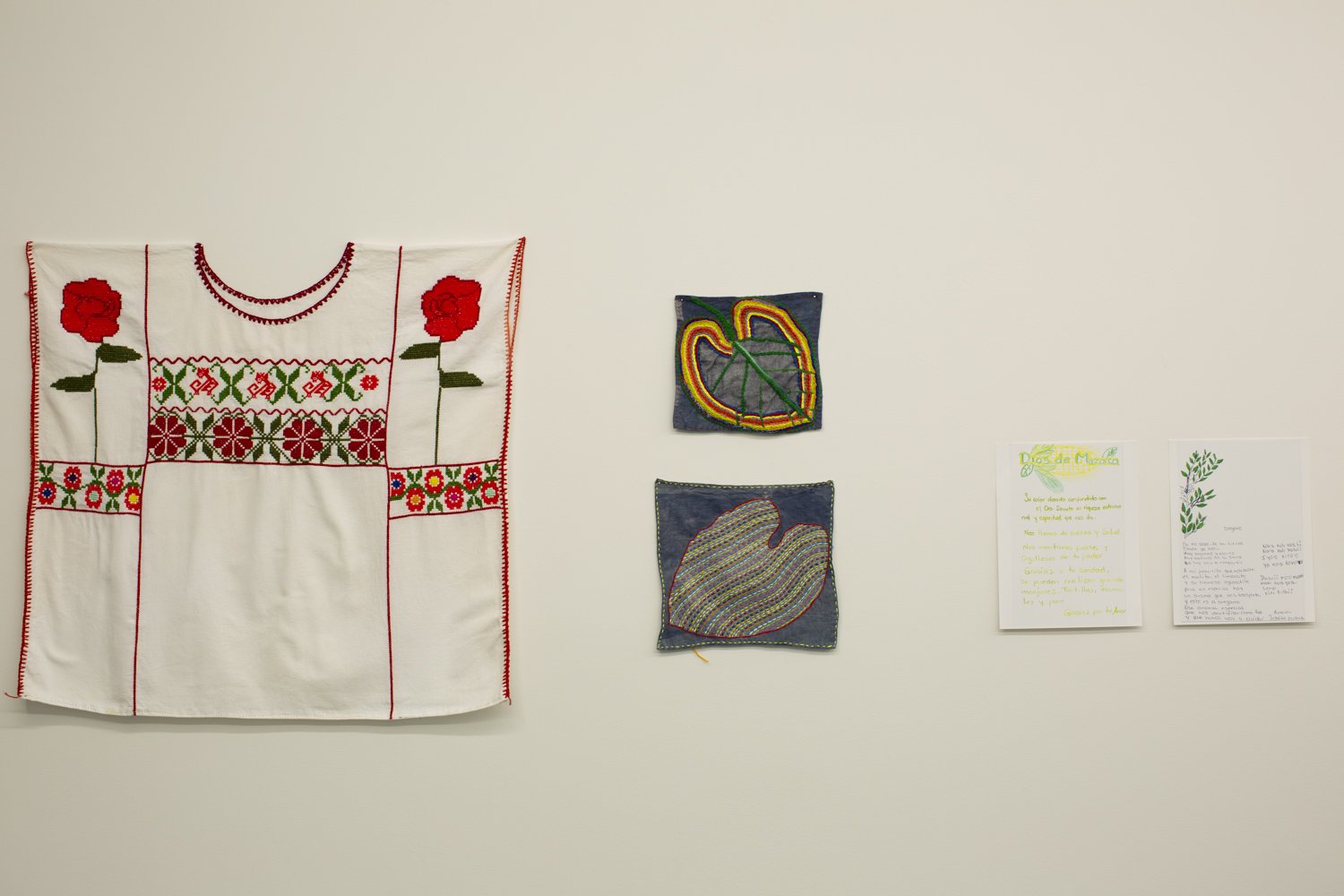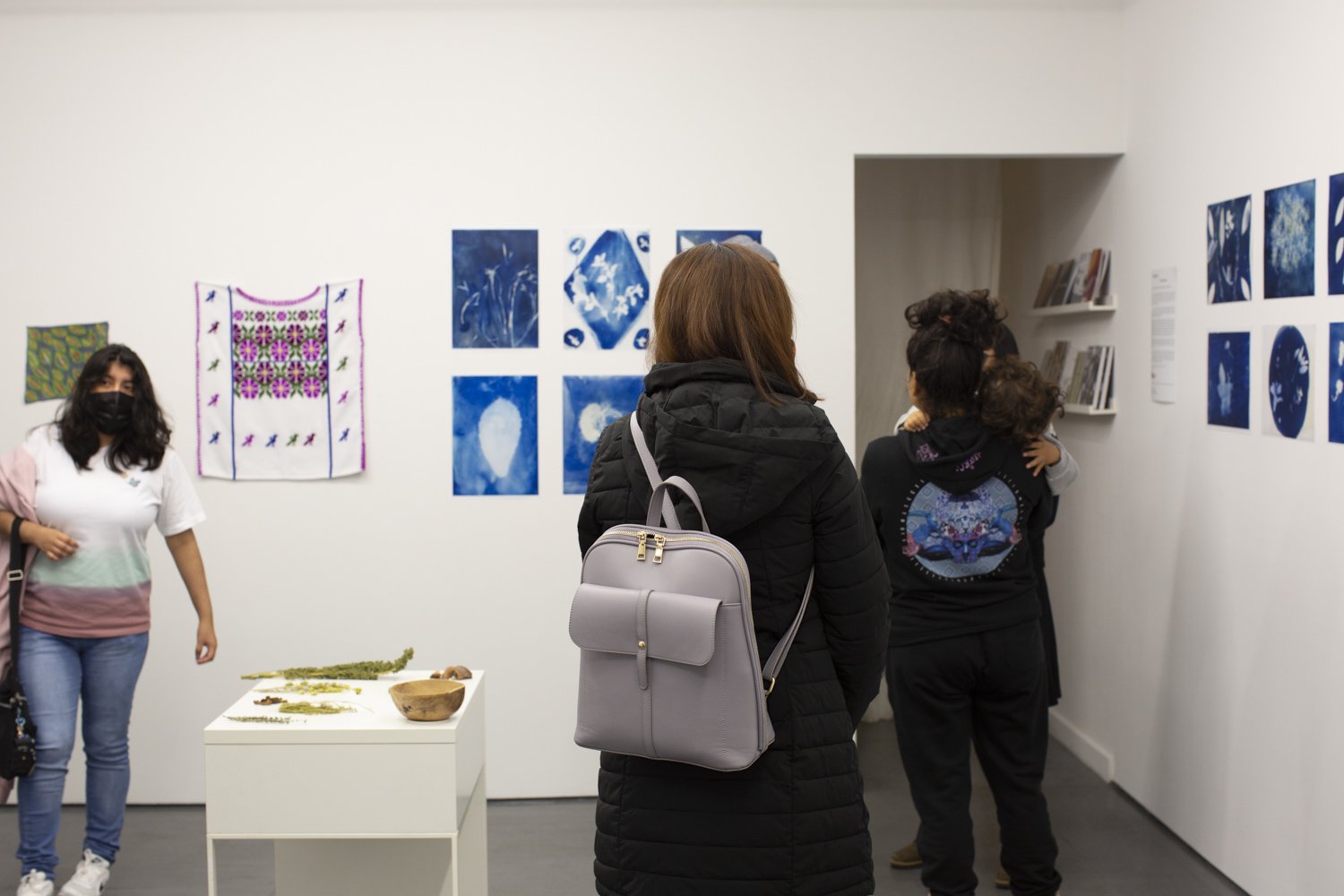Herbolario Migrante
Collaborative works with Cinthya Santos Briones and María José Prudente
On view October 26–27, 2021
Opening reception Tuesday, October 26, 6-9pm
Featuring a performance by Mariachi Nuevo Amanecer
Wednesday, October 27
Open by appointment only, between 10am-4pm
Transmitter is proud to present Herbolario Migrante, a pop-up exhibition of cyanotypes, and an evening of celebration with artists Cinthya Santos Briones, Maria José Prudente, and the community. Translated to “Migrant Herbalism”, the works on view are the result of an ongoing collaborative project between the workshop participants and the artists. Each cyanotype captures the hand and the intimate exchange of traditional knowledge among us. As an artist and cultural liaison, Santos Briones states:
“When we migrate, when we move through a territory, our identity, culture, language, and worldview also migrate. The use of herbs and medicinal plants have traveled in space and time, as well as the knowledge about the uses of traditional Indigenous medicine. Migrant Herbalism is a collaborative project that recovers the knowledge and use of Indigenous herbalism through blueprint photography and oral history.
Through the realization of art workshops at the community organization Mixteca, I invite Indigenous and Latine migrants to become active participants. We create a series of photographs made using the cyanotype process. The imprinted materials are the medicinal herbs, barks, minerals, and seeds of our ancestral origin that we find in New York City’s Mexican groceries and botanicas that also migrated with us. Through acts of listening, we share collective memories and stories about the traditional knowledge of herbs and their healing properties that for many generations have been shared by the ancestors of contemporary migrants. Workshop participants write down these stories and information in the form of poetry, short stories, or recipes. Finally, with the resulting photographs and texts, the participants make a handmade herbal book.
The use of traditional Indigenous medicine is a gateway to the diverse flora, minerals, seeds, and roots, which migrants and their ancestors have long used and protected. Currently, the knowledge and practice related to herbalism are in danger of disappearing, not only due to globalization and human displacement but due to the lack of transmission of this knowledge.”
This evening is but one example of the Indigenous migrant ties to New York City that are ever-present, growing, and evolving to empower the cultural richness of a thriving city life. The programming is supported by Mixteca, a community-based organization located in Sunset Park, Brooklyn. It was established in 2000 by a group of concerned community members to address critical needs in health, education, social, and legal issues facing the burgeoning Mexican and Latin American immigrant communities in Brooklyn.
Support for the workshops and this program is made possible by the New York City Artist Corps. #CityArtistCorps
About the artists:
Cinthya Santos Briones is a Mexican participatory artist, anthropologist, ethnohistorian, and community organizer based in New York. Her multimedia work uses collaborative and community narratives of self-representation to tell stories about homeland, immigration, memory, and indigenous identity. Through an interdisciplinary process, she uses photography, ethnography, history, textiles, herbalism, audiovisual, and written narratives. She is the recipient of numerous fellowships and grants including the Magnum Foundation (2016/2018/2020), En Foco (2017), National Geographic Research and Exploration (2018), We Woman (2019), and the National Fund for Culture and the Arts of México (2009/2011). Her work has been published in The New York Times, Pdn, California Sunday Magazine, Vogue, Open Society Foundations, Buzzfeed, The Intercept, and The Nation Magazine, among others.
María José Prudente is an Indigenous artist, interpreter and cultural organizer tu ’un savi (Mixteca). At the forefront, her work as an activist and community leader is as an Indigenous language interpreter for children, adolescents, and adults in national immigration courts and detention centers across the United States. As an artist she works with embroidery facilitating community workshops on art, gender, and healing, projecting an Indigenous feminist perspective with Indigenous and mestizo migrant women in New York City. She is currently a distance-learning Law student at the Autonomous University of Mexico (UNAM) in Mexico City. María José is part of the FIMI (International Forum for the Leadership of Indigenous Women), Comunidades Indígenas en liderazgo (CIELO) and the founder of the Indigenous organization Voces de los Pueblos.

